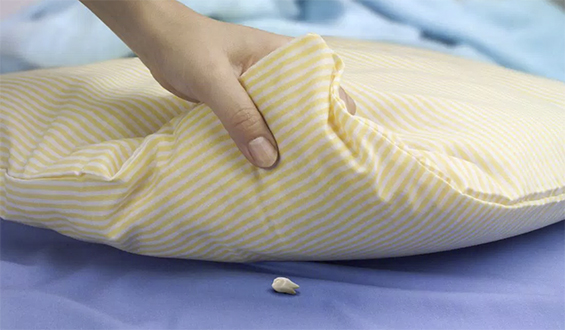
Yikes! The British tooth fairy is getting extremely generous. She is reportedly paying up to £10 ($15 USD) per tooth, which means that some children are getting approximately £200 ($300) for their full set of baby teeth, according to a recent survey.
Emma Glanfield writes for The Daily Mail that youngsters in the UK are reaping the benefits of the economic upturn. The poll found that one in ten kids get £10 per tooth, with children in London receiving the most because of inflation and wage increases.
The average payout was £2.10 per tooth, which is higher than the £1.50 five years ago. But the tooth fairy gives different amounts according to where a child lives in Britain. In the capital and the southeast, the conventional take is £2.50 a tooth. The tooth fairy gets a bit stingy in Newcastle, where kids get an average of £1 per fallen tooth.
Carisbrook Dental in Manchester, one of the leading private dental offices in the country, executed the survey of 1,000 parents. The researchers found that 27% of kids get a £1 coin per tooth, 25% get a £2 coin for each lost tooth, and 14% get less than £1, usually £.50.
But 12% get £5, 9% get £10, 3% get between £10 and £20, and 2% get more than £20. Fortunately, only 8% of young people never get a visit from the tooth fairy.
Nine out of ten parents said their children under five years old believe in the tooth fairy, the same as the number who believe in Santa Claus. But more than 36% of parents said their children spent their tooth fairy money on candy. Thirty-one percent spent their money on toys.
Dr. Tariq Idrees, a dentist and owner of Carisbrook Dental, said:
“At Carisbrook Dental we tend to find that parents and children who are most excited by the tooth fairy and make sure that it visits with each lost tooth also take dental care most seriously, too. They tend to be the children who brush their teeth most regularly with little parental pressure and suffer the least tooth decay. It is shame that 36 per cent of children are spending their Tooth Fairy money on sweets.”
This means, says Stuart Heritage of The Guardian, that if your child is the right age, they could have £200 in their mouths. But allowances have offset the increase in the price of teeth. In 2005, a child received an average of £8.37 in weekly gratuity. In 2009, the weekly payment dropped to an average of £6.24, and by 2010 kids were getting only £5.89 a week. There was false hope when it rose to £6.50 in 2013, but plummeted back to 2009 levels last year.
Birmingham is one of Britain’s most extravagant spots for the tooth fairy, with an average £1.75 price-tag for each tooth, up from £1.50 five years ago.
Most kids have a full set of 20 baby teeth by the time they are 3 years old, and they begin to lose them by the age of five or six. The first teeth usually fall out in the same order they came in. This process means that commonly the front, center, lower teeth disappear first, reports Jasbir Authi, writing for the Birmingham Mail.




